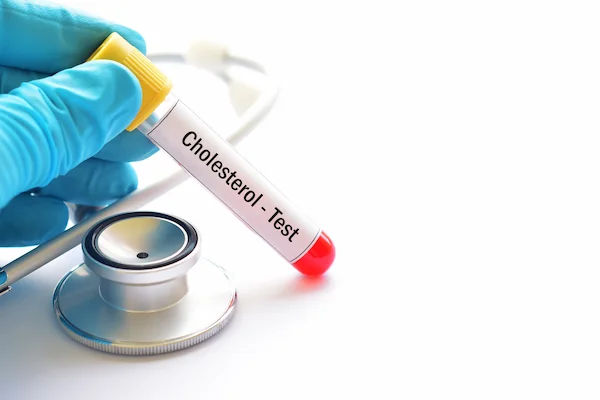Cortisol and Aldosterone: Their Relationship Explained.
Discover the key roles of cortisol and aldosterone in managing stress, blood pressure, and fluid balance. Learn how they’re connected and what to do if levels are imbalanced.

Written by Dr. J T Hema Pratima
Reviewed by Dr. Dhankecha Mayank Dineshbhai MBBS
Last updated on 28th Jul, 2025

Introduction
Have you ever wondered how your body manages stress, blood pressure, and salt balance? Two important hormones—cortisol and aldosterone—play a crucial role in these functions. While they have different jobs, they are closely related and sometimes influence each other.
In this article, we’ll break down what these hormones do, how they affect your health, and what happens when their balance is disrupted.
What Are Cortisol and Aldosterone?
Here is an overview of cortisol and aldosterone:
1. Cortisol: The "Stress Hormone"
Cortisol is produced by the adrenal glands (small glands on top of your kidneys). It helps your body:
Manage stress
Control blood sugar levels
Reduce inflammation
Regulate metabolism
When you're stressed (physically or emotionally), cortisol levels rise to help your body cope. However, too much cortisol over time can lead to health problems.
2. Aldosterone: The "Salt and Water Balancer"
Aldosterone is also made in the adrenal glands, but its main job is to regulate:
Blood pressure
Sodium (salt) levels
Potassium levels
Fluid balance in the body
It works by telling your kidneys to hold onto sodium (and water) while removing excess potassium. This helps maintain proper blood pressure.
How Are Cortisol and Aldosterone Related?
Both hormones come from the adrenal glands and share a similar production pathway. Here’s how they interact:
1. Shared Origin: Both are derived from cholesterol and produced in the adrenal cortex (outer layer of the adrenal glands).
2. Enzyme Connection: An enzyme called 11β-hydroxylase helps convert precursors into cortisol and aldosterone. If this enzyme isn’t working properly, it can affect both hormones.
3. Stress Impact: High cortisol (due to chronic stress) can sometimes interfere with aldosterone production, leading to imbalances in blood pressure and electrolytes.
What Happens When These Hormones Are Imbalanced?
Let’s see what happens when there is a hormone imbalance:
1. High Cortisol (Cushing’s Syndrome)
Symptoms may include:
Weight gain (especially around the face and abdomen)
High blood pressure
Muscle weakness
Mood swings or anxiety
High blood sugar
2. Low Cortisol (Addison’s Disease)
Symptoms may include:
Fatigue and weakness
Low blood pressure
Salt cravings
Darkening of the skin
Nausea and dizziness
Consult Top Specialists for Personalised Tips
3.High Aldosterone (Hyperaldosteronism)
Symptoms may include:
High blood pressure
Low potassium (leading to muscle cramps or weakness)
Frequent urination
Headaches
4. Low Aldosterone (Hypoaldosteronism)
Symptoms may include:
Low blood pressure
High potassium levels (causing irregular heartbeats)
Dehydration
Fatigue
How Can You Keep These Hormones Balanced?
Here is how you can keep your hormones balanced:
1. Manage Stress
Since cortisol is linked to stress, try:
Deep breathing exercises
Yoga or meditation
Regular sleep (7-9 hours per night)
2. Eat a Balanced Diet
For cortisol control: Reduce caffeine and sugar, eat more whole grains, lean proteins, and healthy fats.
For aldosterone balance: Maintain proper sodium and potassium intake (bananas, spinach, and sweet potatoes are good sources of potassium).
3. Stay Hydrated
Proper fluid intake helps aldosterone regulate blood pressure effectively.
4. Exercise Regularly
Moderate exercise helps regulate cortisol and supports heart health, which is linked to aldosterone function.
5. Monitor Blood Pressure
If you have unexplained high or low blood pressure, consult a doctor—it could be related to cortisol or aldosterone imbalance.
When Should You See a Doctor?
If you experience:
Persistent fatigue
Unexplained weight changes
Severe blood pressure fluctuations
Muscle weakness or cramps
Mood disorders (anxiety, depression)
It’s best to get tested. A simple blood or urine test can measure cortisol and aldosterone levels.
Conclusion
Cortisol and aldosterone are essential for managing stress, blood pressure, and fluid balance. While they have different roles, they work together to keep your body functioning smoothly. If you suspect an imbalance, lifestyle changes and medical guidance can help restore harmony.
Stay mindful of your body’s signals, and don’t hesitate to seek professional advice when needed. Your health is worth it!
Consult Top Specialists
Consult Top Specialists for Personalised Tips

Dr. Lakshmi Sanjitha Kakani
General Physician/ Internal Medicine Specialist
6 Years • MBBS, MD (General Medicine)
Visakhapatnam
Apollo 24|7 Clinic - Andhra Pradesh, Visakhapatnam

Dr Divya Lekha Gunta
General Practitioner
10 Years • MBBS, MD (Pathology)
Visakhapatnam
Apollo 24|7 Clinic - Andhra Pradesh, Visakhapatnam

Dr. J T Hema Pratima
General Practitioner
9 Years • MBBS
Chennai
Apollo 24|7 Clinic - Tamilnadu, Chennai
(250+ Patients)

Dr. Immanuel Raj
General Practitioner
8 Years • MBBS. MBA (HHSM)
Visakhapatnam
Apollo 24|7 Clinic - Andhra Pradesh, Visakhapatnam

Dr. Jawwad Mohammed Kaleem
General Practitioner
4 Years • MBBS
Hyderabad
Apollo 24|7 Clinic, Hyderabad
Consult Top Specialists

Dr. Lakshmi Sanjitha Kakani
General Physician/ Internal Medicine Specialist
6 Years • MBBS, MD (General Medicine)
Visakhapatnam
Apollo 24|7 Clinic - Andhra Pradesh, Visakhapatnam

Dr Divya Lekha Gunta
General Practitioner
10 Years • MBBS, MD (Pathology)
Visakhapatnam
Apollo 24|7 Clinic - Andhra Pradesh, Visakhapatnam

Dr. J T Hema Pratima
General Practitioner
9 Years • MBBS
Chennai
Apollo 24|7 Clinic - Tamilnadu, Chennai
(250+ Patients)

Dr. Immanuel Raj
General Practitioner
8 Years • MBBS. MBA (HHSM)
Visakhapatnam
Apollo 24|7 Clinic - Andhra Pradesh, Visakhapatnam

Dr. Jawwad Mohammed Kaleem
General Practitioner
4 Years • MBBS
Hyderabad
Apollo 24|7 Clinic, Hyderabad




